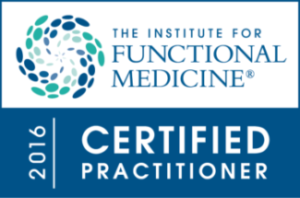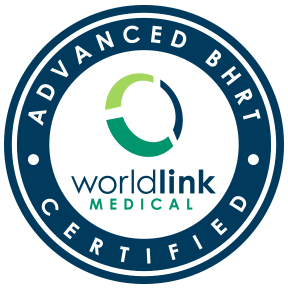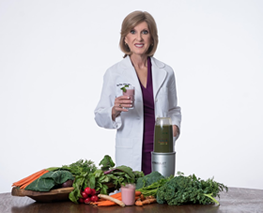How to Reduce Cholesterol from a High Cholesterol Diet
For a few years, low-cholesterol diets were all the rage. Companies advertised prescription drugs that would lower your cholesterol levels, and food companies started making low-cholesterol snack options. But few people understand what cholesterol is and how it can negatively affect your health. The team at Dr. Cheryl Winter’s practice is here to provide an overview of the risks high cholesterol diets pose to your health.
As a part of proper functioning, the human liver produces cholesterol, a fat essential for hormone health and cell function. Cholesterol isn’t soluble in water and is transported via lipoproteins. Low-density lipoprotein (LDL) is one of these carrier proteins. If you have too much LDL in your bloodstream, you have high cholesterol.
High cholesterol leads to clogged arteries and a higher risk of blood clots. Because high cholesterol causes no significant symptoms, many people may have elevated cholesterol levels without knowing it, which means they also don’t know they’re at risk for heart problems.
Thankfully, high cholesterol can be addressed and treated. For most people, dietary changes are enough to restore health cholesterol levels.
The Dangers of High Cholesterol
Currently, cholesterol is considered high when levels are over 240 mg/dL. High cholesterol causes plaque buildup in the arteries, a condition known as Atherosclerosis. Untreated, atherosclerosis can escalate to other health problems, such as:
- Heart attack
- Chest pain
- High blood pressure/diabetes
- Kidney disease
- Peripheral vascular disease
- Stroke
- Gallstones
Some of these conditions are life-threatening, making it even more important to properly identify and address high cholesterol symptoms.
The Root Causes of High Cholesterol
These are some of the contributing factors to high cholesterol:
- Nutrition/dietary choices
- Exercise levels
- Unhealthy alcohol consumption
- Smoking
- Genetics
- Body composition
- Familial hypercholesterolemia (a rare genetic disorder)
- Existing health conditions (such as an autoimmune disease)
- Environmental toxins
- Gut imbalances
However, it’s important to note that high cholesterol is not a “one-size-fits-all” disease, and it shouldn’t be treated as such. That’s why functional medicine doctors like Dr. Winter seek to get to the root of your health problems instead of treating surface-level symptoms. In many cases, the underlying causes of high cholesterol also contribute to other symptoms, so treating the high cholesterol can lead to positive health outcomes in other areas.
How to Reverse High Cholesterol
Traditional doctors will almost always focus on nutrition, prescribe medication, and advise their patients to lose weight. Maybe you’ve had a meeting with your doctor only to be told to “just lose the weight,” as if this will make all your symptoms magically disappear. However, weight loss and cholesterol management is much easier said than done.
While these changes may help some people, they may frustrate others whose bodies don’t respond to this plan. Being healthy is so much more than weight loss and medication.
Functional medicine doctors know that your body is capable of healing itself. These physicians help you find the root cause of your health problem instead of just addressing symptoms.
Addressing the Diet
While high cholesterol may be multi-faceted, the truth is that many people consume a high cholesterol diet. Making dietary adjustments helps reduce cholesterol to a healthy level.
Most of us are told that fat, especially saturated fat, is the number one culprit behind high cholesterol. However, more comprehensive research proves that saturated fats aren’t entirely to blame. For decades, doctors have been advising low-fat, high-carb diets. Clearly, this advice has gotten us nowhere. Low-fat, high-carb diets can cause other serious health issues. It’s also been shown that sugar (a carb) is a highly contributing factor to high cholesterol levels.
Instead of avoiding certain food groups, listen to your body’s needs and eat a balanced diet. In the long run, you will feel your best, and your body will receive the nourishment it needs.
As you start making changes to your high cholesterol diet, try to incorporate these foods:
- Fatty fish (such as salmon or tuna)
- Olive oil
- Berries
- Beans
- Avocado
- Spinach
- Whole grains (such as oatmeal or barley)
- Dark chocolate
- Vegetables
- Black tea
- Soy
- Red wine
- Nuts
Lowering cholesterol doesn’t mean that processed foods are off-limits. However, be mindful of how much salt, sugar, and trans fats you’re consuming. These contribute to a high cholesterol diet. As you shop, read food labels and pay attention to ingredients and nutrition content.
The Role of Hormones
Many people suffer from imbalanced or depleted hormones, which can contribute to serious health conditions including high cholesterol.
The body uses cholesterol to produce hormones like cortisol, estrogen, and testosterone. Also, hormones themselves can raise and lower cholesterol levels. For example, when the body doesn’t produce enough thyroid hormones, LDL cholesterol levels rise. Hormone imbalances affect many other areas of health, including weight gain, mental health, muscle loss, and lack of energy.
Traditional healthcare doctors normally focus on diet and weight loss when it comes to lowering cholesterol and don’t address hormones. That’s one of the many things that sets functional medicine doctors apart. At Vital Health Solutions, Dr. Cheryl Winter provides hormone consultations, treatment, and even a free hormone quiz.
By addressing and restoring the body’s hormone levels, you can expect your cholesterol levels—and overall health—to improve.
Other Lifestyle Changes
Being “healthy” doesn’t solely encompass physical health. It’s important to go beyond nutrition. Here are some other changes a functional medicine doctor may suggest for your physical and mental health:
- Journaling
- Mediation
- Mental health counseling
- Supplements
- Hormone replacement therapy
- Quit smoking
- Reduced alcohol consumption
- Exercise
Working with a functional medicine doctor means addressing your entire lifestyle and working toward complete healing from the inside out.
Functional Medicine in Conroe, TX
Dr. Cheryl Winter (DCN, FNP-BC/APRN, RDN, IFMCP) operates out of Conroe, Texas. She specializes in functional medicine, hormone therapy, and nutrition counseling to help patients reverse a high cholesterol diet and get back to feeling their best. Schedule a free 15-minute phone consultation and say hello to feeling like yourself again.








